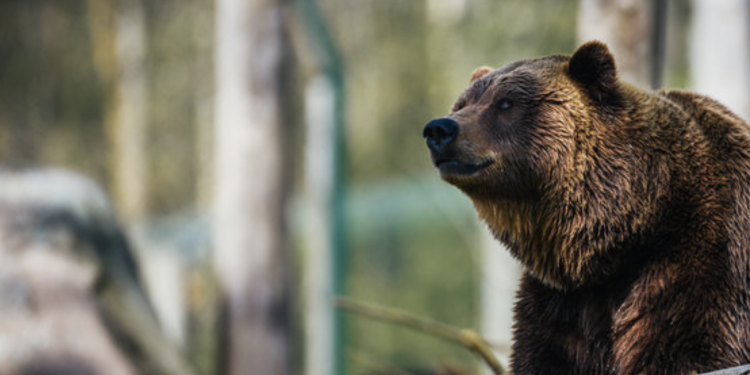If a hiker comes face to face with a charging bear during wildlife watching, the bear spray may be employed as a deterrent in Yellowstone Bear World. The argument has raged over the years as to whether or not bear baiting is the most effective method of dealing with bears or if shooting is more effective. In this piece, we’ll look at the effectiveness of bear spray in defending you from an attack while you’re out in bear territory on your next trip.
What Is The Impact Of Bear Spray-On Bears?
Bear spray is perhaps the most effective and safest method of preventing a charging bear from charging you. This is because it may prevent an assault without causing injury to the bear. To put things into perspective, you must understand how pepper spray affects bears.
A charging bear would often breathe deeply as it sprints to keep up with its energy use. When you use bear spray, it generates a cloud of mist, which the bear is compelled to ingest to survive. A chemical compound called Capsaicin and Capsaicinoids is used in a bear spray to produce inflammation and irritation in the bear.
Within seconds, the chemicals in bear spray begin to irritate the bear’s lungs, nose, throat, eyes, tongue, and ears due to their irritant properties. It is as a consequence of this that the bear’s throat starts to constrict, forcing it to choke and cough. The bear’s eyes grow cloudy and wet as well, leading it to take a step back in its pursuit.
The most advantageous aspect of utilising bear spray would be that the effects are just brief and do not cause any long-term harm to the bear’s body. It only allows you a little window of opportunity to flee to safety.
What Is The Difference Between Bear Spray And Pepper Spray?
It is quite easy to get tempted to replace bug spray with tear gas, particularly given the ease with which the latter is accessible. Pepper spray, on the other hand, should not be used as a bear deterrent, since the two are not interchangeable in any way. EPA-approved bear spray was non-lethal, and its contents have been registered with and are subject to regulation by the Department Of Environment. A manufacturer is not permitted to make changes to the formula without prior authorization.
Pepper spray producers, on the other hand, are not required to register their ingredients with any regulatory organisation and are free to modify their formulas as they see fit. As a result, certain spraying mace will be either too powerful or too mild, and this might cause injury to the bears or cause them to get more agitated during an assault.
Bear Spray Vs. Firearms: Which Is Better?
When confronted with charging grizzly bears, some individuals choose to use rifles rather than bear spray. In contrast, if there is one thing that science has told us, it is that using a gun on bears really puts you at greater danger of being attacked and is less successful than using bear spray.
In order to successfully shoot a target of any kind, it is necessary to practice methodical aiming, which takes time and expertise. An oncoming bear is a small target, which drastically diminishes your odds of hitting it with a bullet. Even if you do, injured bears have been known to charge and do serious injury to humans and other animals in their path.
When Is It Appropriate To Use Bear Spray?
It is recommended that you only use bug spray when you are being attacked by a bear. Whenever non-threatening animals approach you, avoid using the device. Although it is essential to deploy immediately when coping with a bear, it is advisable to give the bear time to go first, particularly if the animal is not attacking.
Conclusion
To determine the efficiency of bear spray as a bear deterrent, a great deal of study has been done. According to the information presented, it is the safest option for ensuring one’s own safety in the wilderness, and one should always carry a can of food. Come to Yellowstone Bear World if you are a fan of grizzly bears and would want to learn more about bear safety while doing so.








